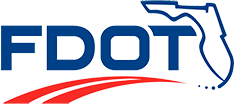

I-4 Ultimate, the largest highway infrastructure project in Florida history, is complete. Central Florida motorists now enjoy a smoother drive along the corridor, which spans 21 miles of Interstate 4 (I-4) from west of Kirkman Road (State Road (S.R.) 435) to east of S.R. 434.
The historic project included construction of two tolled, managed lanes in each direction, known as I-4 Express. These lanes in the center of I-4 offer motorists a reliable new option.
New I-4 improvements in Orange, Osceola and Seminole counties are part of the Florida Department of Transportation’s (FDOT) I-4 Beyond the Ultimate project. For all other transportation projects in FDOT District Five (Brevard, Flagler, Lake, Marion, Orange, Osceola, Seminole, Sumter, and Volusia counties), visit cflroads.com.
Visit these websites for more information on FDOT projects, services, and programs:
For more information, please contact FDOT at 321-988-9375 or info@i4ultimate.com.